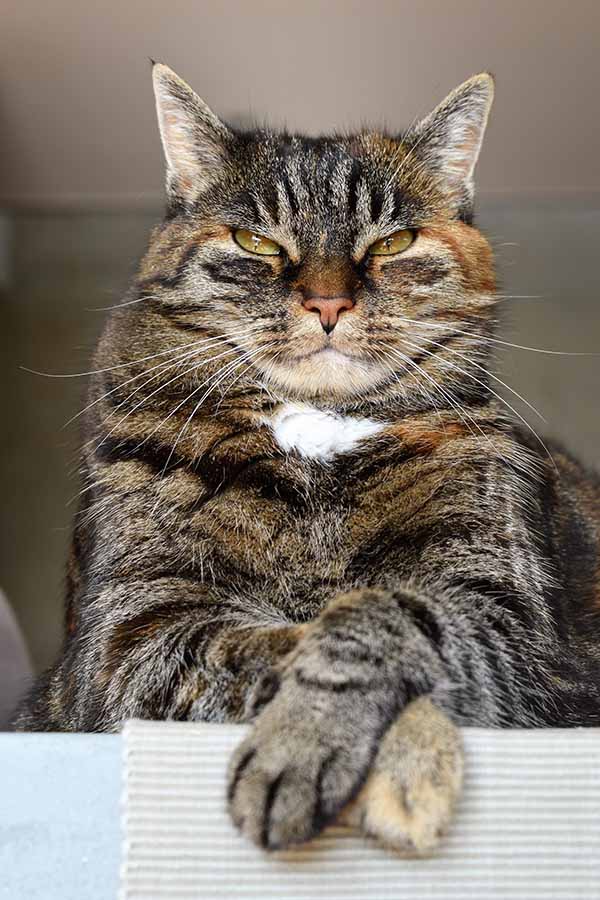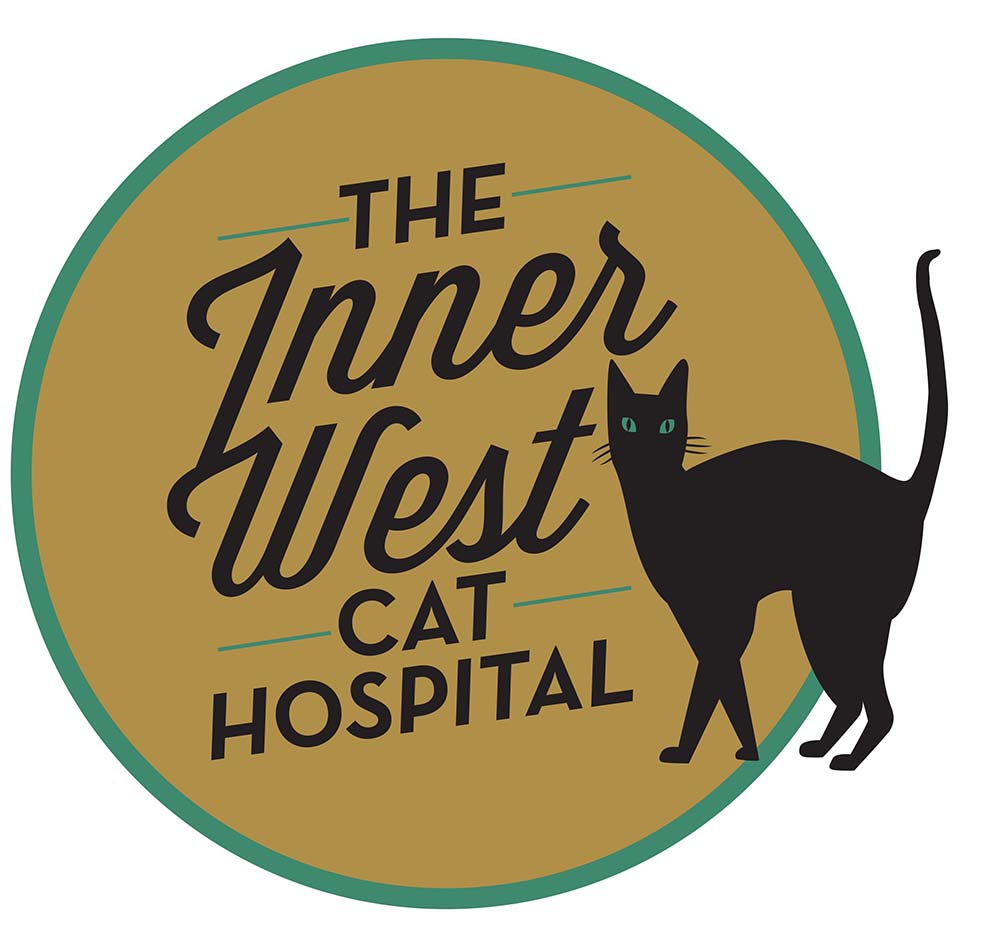Cat Health
Geriatric Cats
15yrs and older (76yrs or older in human years)
With better veterinary care, increased knowledge and vigilant owners, cats are living longer than ever. In the past we would be grateful if our cat lived to be older than 10years and were not always aware of current or impending illnesses.
Walking with a stiff gait, howling at night, urinating on themselves and a decrease or the ceasing of grooming was seen as a natural part of getting older for our feline friends. We know now though that these can be signs of illness and with cats able to hide signs of pain and illness so well, these are the years for vigilant monitoring at home, and frequent health checks with the vet.

Veterinary care recommended and how often to get it done
Health check/physical exam – every 3-6 months
Weight check – can be done at time of health check or more often if weight is a concern
Vaccination – Every 1-3 years based on your cats needs
Worming – every 3-12 months based on your cats needs
Flea and tick control – monthly, or less often depending on the product used.
Nail cut – check nails regularly, at this age cats tend to scratch at poles etc. less often and they can become overgrown and painful. Trim as necessary
Blood pressure check – every 3-6 months or more regularly based on your cats needs.
Urine test – every 3-6months or more regularly based on your cats needs.
Blood tests – every 3-12 months depending on your cats needs.
*These recommendations may vary between vets; these suggestions are based on our desire to keep your cats safe and happy!
At this age, we need to be vigilant in our monitoring and care of our geriatric feline friends.
Keep them comfortable
Geriatric cats will spend a lot of time sleeping so please make sure they have access to plenty of comfy beds – fleece type bedding is very soft and nice for their aging joints. Be mindful that they may not be able to jump up onto beds or couches anymore so keep beds down lower or ramps up to higher resting places.
Heated beds and heat mats such as “snuggle-safes” are a great way to provide warmth for painful joints just be sure to cover them with blankets to avoid burns.
Offer them plenty of options for litter trays indoors. Even if your cat has gone to the toilet outside their whole life, as they get older they appreciate the comfort of going to the toilet in the warm and dry instead of stumbling through a cat flap to go to the toilet in the rain and cold.
Keep in mind the type of litter you are using as well, as cats get older the harder paper and crystal based litters can be tough on their paws when they posture to toilet and they may appreciate/benefit from softer litter – especially if you are finding accidents just outside the litter box.
Litter trays with high edges can also help decrease accidents outside of the tray – just make sure it has a low point for the cat to walk through.
Monitor for signs of illness
Once a cat reaches the age of 15yrs we can almost assume they have some kind of underlying disease that is not apparent, that is why regular veterinary checks up are recommended.
In the mean time, there are a few things we can monitor at home.
- Watch how much they drink – drinking more or less can indicate different diseases or sometimes exacerbate underlying illnesses. If you are not sure if they are drinking the right amount, measure their intake over a 24hr period.
- How much are they urinating? Similarly a cat that urinates more or less frequently can indicate an underlying illness. If you think your cat is urinating more or less, call your vet.
- Keep an eye on movement – are they still jumping on the bed and couch or do they prefer to sleep down low? Do they have difficulty getting up and down the stairs or started sleeping in warm spots? These may indicate sore joints and arthritis. There are a lot of things we can do to alleviate the pain from these conditions so please get in touch if you think your cat may have arthritis.
- Observe them eating – are they dropping their biscuits or having difficulty chewing them? Maybe they have stopped eating altogether? These subtle signs along with bad breath, pawing at the mouth or drooling a lot can be signs of dental disease and it may be time for a dental check up.
- Is their coat getting matted? A cat that is not regularly grooming themselves or has stopped altogether may have arthritic pain, dental pain or another underlying illness. At these times you may need to help them with their grooming or get them checked.
As a cat gets older and enters the geriatric years, what may seem a “normal” sign of getting older may in fact be a sign of illness, please always call us for a chat to discuss whether a behavior is normal or expected, or if there is something more that can be done to make them more comfortable.
